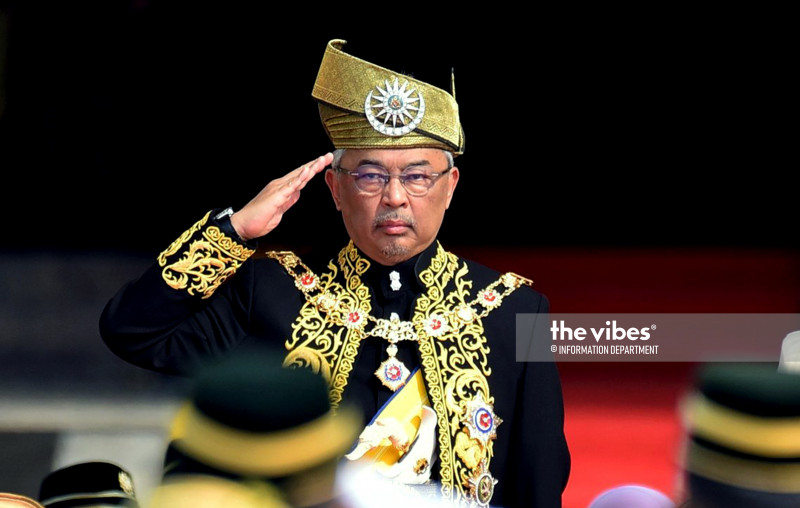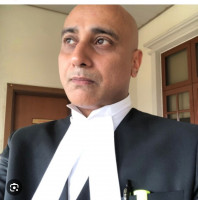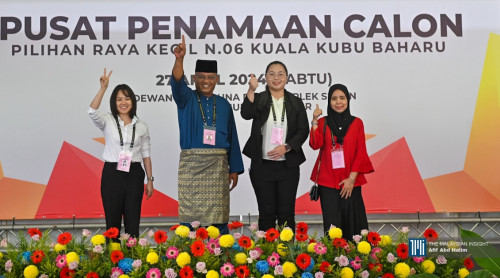
Precedent – a decided case that furnishes a basis for determining later cases involving similar facts or issues – Black’s Law Dictionary 1366
IN relation to the ongoing debate on whether the Yang di-Pertuan Agong’s consent is required to revoke the emergency ordinances, former Federal Court judge Datuk Seri Gopal Sri Ram said it is not essential for the king to sign off on the cabinet’s decision to revoke the emergency ordinances that were previously promulgated by His Majesty.
In a recent article published by a news portal, Gopal Sri Ram had said that there was a precedent set in a landmark constitutional case in the judgment of presiding judge James Beveridge Thompson, the then chief justice of the Federal Court.
While he did not quote the article, I believe he was referring to the judgment of OCJ James Beveridge Thompson in the Government of the State of Kelantan v the Government of the Federation of Malaya and Tunku Abdul Rahman Putra Al-Haj [1963] 1 MLJ 355.
Before going further, it is imperative to appreciate what is the doctrine of judicial precedent. Books and law journals are replete with illustrations of its meaning and in essence judicial precedent is the source of law where previous decisions handed down by the courts create law for judges to refer to for guidance and direction for future cases.
This doctrine was encapsulated adroitly in the Federal Court decision of Kerajaan Malaysia & Ors v Tay Chai Huat 2012 where the apex court held:
“The doctrine of precedent, a fundamental principle of English law, is a form of reasoning and decision-making formed by case law… Judicial precedent means the process whereby judges follow previously decided cases where the facts are of sufficient similarity…”
Therefore referring and relying on cases where the factual matrices are not the same or inconsistent with the existing point at issue is not acceptable in law.
To retrogress to the case of the Government of the State of Kelantan v the Government of the Federation of Malaya and Tunku Abdul Rahman Putra Al-Haj the facts of the case in pith were that a bill was passed in Parliament under the title of the Malaysia Act to amend the 1957 constitution that the states of the federation shall be the states of Malaya, namely Johor, Kedah, Kelantan, Melaka, Negri Sembilan, Pahang, Penang, Perak, Perlis, Selangor and Terengganu and shall also include Sabah, Sarawak and the State of Singapore.
This bill had received the royal assent and accordingly would come into operation.
Consequently, the Kelantan government had attempted to prevent changes to the constitutional arrangement of the states by seeking a declaration from the court that the Malaysia Agreement 1963, and the subsequent passing of the Malaysia Act 1963, are null and void as the proposed constitutional changes would require the consent of each state including Kelantan and additionally that the ruler of Kelantan was not a party to said agreement and its subsequent act.
The state government of Kelantan contended that there is a constitutional convention that the rulers of each state ought to be consulted first regarding any changes to the constitution and that in any event, Parliament has no power to legislate on behalf of the state of Kelantan as the state has its own legislation.
In essence the Kelantan government was seeking declarations to render both null and void as the sultan of Kelantan had not consented to and was never a party to them.
OCJ Thompson in rejecting the arguments put forth by the state government of Kelantan held:
“By Article 160 the constitution itself is a written law and by Article 159 Parliament may make laws amending its provisions. This power is subject only to the restriction that a bill to amend the constitution requires to be passed by a majority of each House of Parliament consisting of two-thirds of the total number of members and by reason of Article 159(5) a law amending Articles 38, 70 or 71(1), which deal with the position of Their Highnesses the (Malay) rulers, or amending Article 153, which relates to the special position of the Malays, shall not be enacted without the consent of the Conference of Rulers. It is, however, to be noted that by reason of Article 159 the requirement of a two-thirds majority does not apply to any amendment of the constitution made for or in connection with the admission of any state.”
“By Article 80(1) the executive authority of the federation extends to all matters with respect to which Parliament may make laws which, as has been seen, includes external affairs including treaties and agreements. The Malaysia Agreement 1963 is signed ‘for the Federation of Malaya’ by the prime minister, the deputy prime minister and four other members of the cabinet. There is nothing whatsoever in the constitution requiring consultation with any state government or the ruler of any state.”
In my humble and respectful view and from my understanding, the case of the government of the state of Kelantan v the government of the Federation of Malaya and Tunku Abdul Rahman Putra Al-Haj was concerned with amendments to be made to the constitution which is provided for under Article 159 and the authority of Parliament to make laws, which is enshrined under Article 74 and Article 80 of the federal constitution.
The case did not discuss and analyse the powers conferred on the king in proclaiming an emergency under Article 150 of the federal constitution, the power to promulgate ordinances during an emergency under Article 150(2B) of the federal constitution and the revocation of ordinances under Article 150(3) of the federal constitution.
Instead, it is the privy council case of Teh Cheng Poh v PP 1978, which is a later decision, and which considered Articles 149 and 150 of the federal constitution that ought to be referred to as judicial precedent for guidance.
In Teh Cheng Poh’s case, Lord Diplock in delivering the judgment of the court held that any revocation can only be done either by resolutions passed in Parliament or by the Agong himself and if the king fails to do so, even the courts have no power to revoke them.
In concluding, I would make mention of the case of the commissioner of income tax vs M/s Sun Engineering Works Private Limited AIR 1993, SC 43, where the Indian Supreme Court held:
“While applying the decision to later cases, the court must carefully try to ascertain the true principle laid down by the decision of the Supreme Court and not to pick out words or sentences from the judgment divorced from the context of question under consideration by the court to support their reasoning.” – The Vibes, July 31, 2021
Datuk Seri Rajan Navaratnam is a prominent senior lawyer who is also independent counsel for The Vibes






















